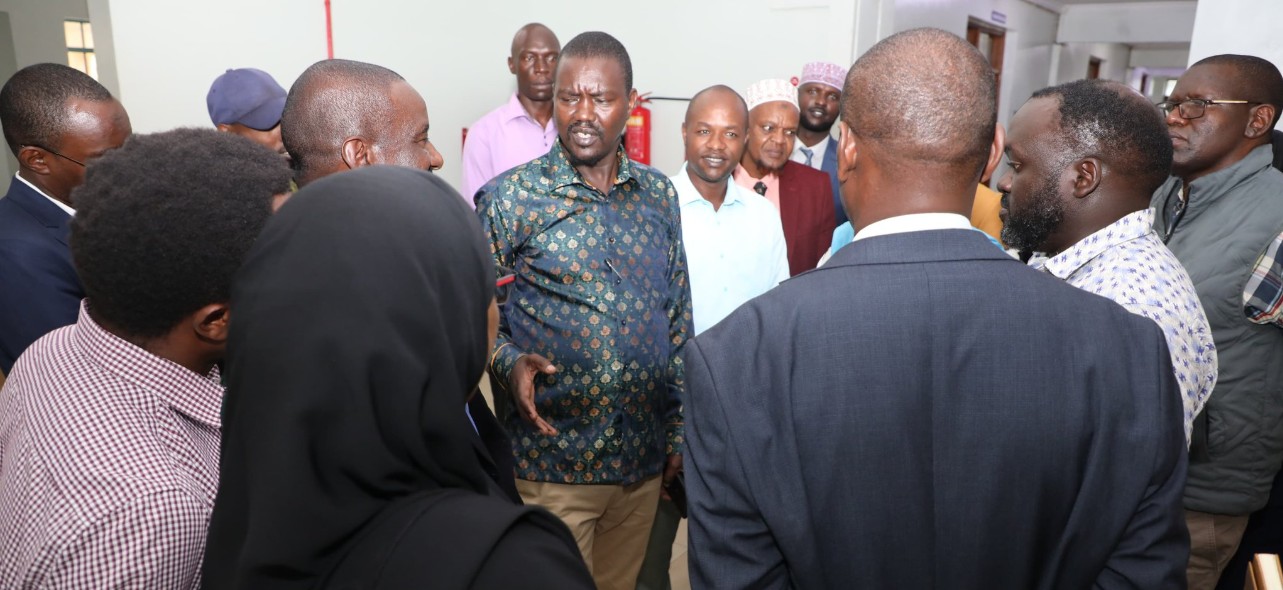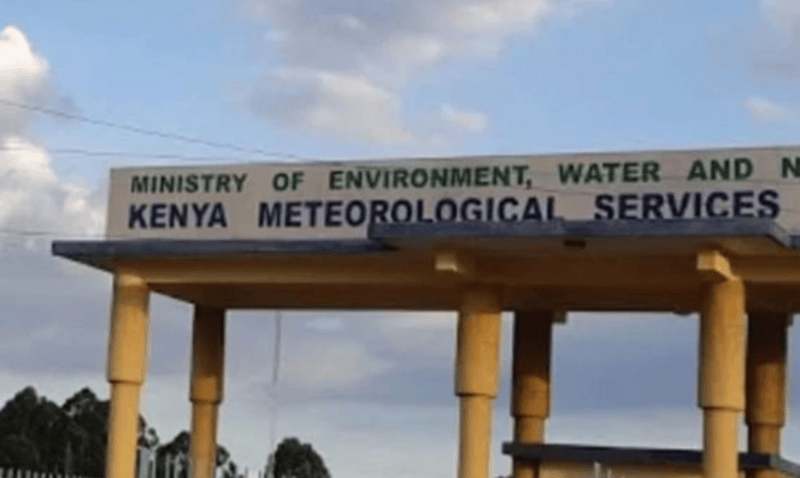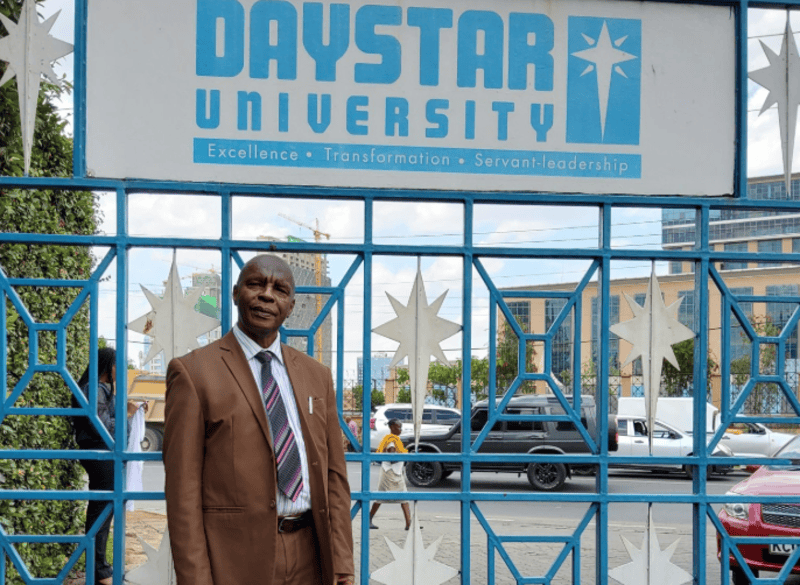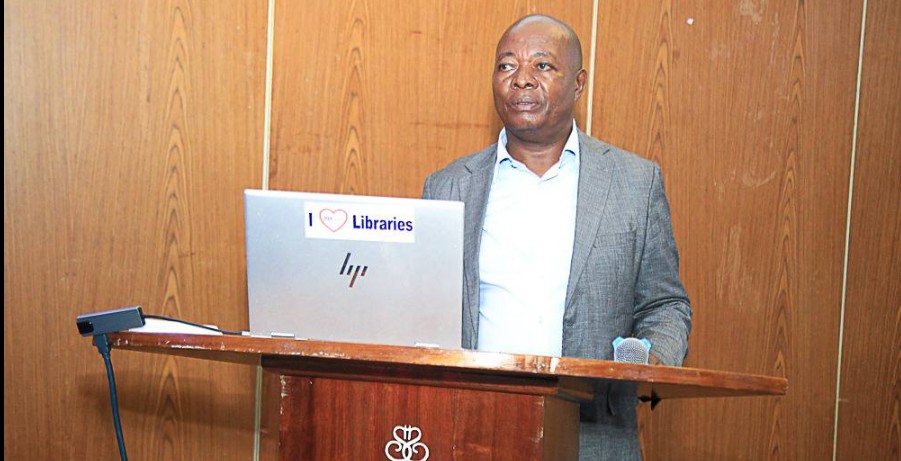Man sues over cancer deaths, seeks ban on toxic chemicals, stronger health protections

Cheruiyot also wants the President compelled to appoint a commission of inquiry to investigate the cancer crisis in Kenya and to comprehensively address legal gaps in the cancer control and prevention ecosystem.
A man has moved to the High Court over the alarming deaths of Kenyans from cancer, citing banned chemicals or substances in the country as a major contributing factor.
Solomon Kipkurui Cheruiyot claims Kenyans are needlessly dying from cancer due to a lack of genetic counselling, testing and appropriate care, yet scientists have linked genetics to cancer, meaning heredity has a role to play in some cancers.
More To Read
- Oesophageal cancer cases rise in Wajir as patients face delayed diagnosis
- Staffing shortage at National Cancer Institute puts strain on treatment services
- Government orders nationwide removal of asbestos, property owners to bear costs
- Is your non-stick pot putting your family at risk? Understanding Teflon and safer alternatives
He is seeking a declaratory order that if a substance or its mixtures, active ingredients and chemicals have been banned for human health, safety and environmental reasons, they should remain banned in Kenya.
In his petition, Cheruiyot wants orders granted stating that if a chemical product is given restrictive treatment in the economic bloc, union or country of manufacture on the account of being probable or known to be carcinogenic, then they are deemed equally banned and illegal in Kenya.
He says that cancer is both a human rights issue as well as a public health.
Cheruiyot says cancer affects Kenyans of all ages and socioeconomic backgrounds. Yet, it has far more devastating effects on vulnerable groups.
According to 2020 statistics, cancer kills over 30,000 Kenyans annually and drives many to poverty.
He adds that while the causes of childhood cancer are largely unknown, environmental exposure plays an important role.
International conventions
Cheruiyot adds that there is no demonstrable operationalisation and enforcement by relevant Kenyan public bodies and watchdogs of the international conventions, including the Stockholm and Rotterdam conventions.
He says companies selling hazardous pesticides profit from poisoning workers, communities and the environment.
"This is not only a matter of global health and environmental protection, but also of social and ethical rights. In September 2020, there was a public call by the UN Special Rapporteur on toxics for states to “stop exporting unwanted toxic chemicals to poorer countries”.”
He says protection from exposure to hazardous substances is fundamentally about the rights to life, non-discrimination and bodily integrity, and is dependent on the realisation of everyone’s right to information, meaningful participation and freedoms of association and assembly, as well as the right to an effective remedy, among others.
Duty of care
He wants a further declaratory order that marketers of foreign products and subsidiaries of foreign parent companies accord to Kenyan consumers the same duty of care, parent-company liability, as well as levels of health and safety safeguards as those accorded by parent companies to consumers in their home countries or economic blocs.
Cheruiyot wants the court to give an order that the Agriculture and Food Authority, the Kenya Bureau of Standards and the Kenya Plant Health Inspectorate Service continually conduct tests on food product imports and deny entry for products containing residues of already banned and illegal pesticides and other toxic chemicals.
He also wants each registered grain miller compelled to have laboratories for aflatoxin testing.
He wants the Cabinet Secretary for Health and the county governors to conduct both voluntary and provider-initiated targeted genetic testing and counselling to those at highest risk of cancers due to hereditary gene mutations.
Cheruiyot also wants the President compelled to appoint a commission of inquiry to investigate the cancer crisis in Kenya and to comprehensively address legal gaps in the cancer control and prevention ecosystem.
To reduce exhaust pollution Cheruiyot also wants the court to compel the Attorney General, NEMA, CSs for Health and Interior, Inspector General of Police and the governors of Nairobi, Mombasa, Kisumu, Nakuru, Kiambu and Uasin Gishu to enact regulations limiting diesel engine idling or unnecessary exhaust pollution in traffic, bus termini, pseudo-bus stages on streets with street human traffic, vendors and schools.
Top Stories Today










































